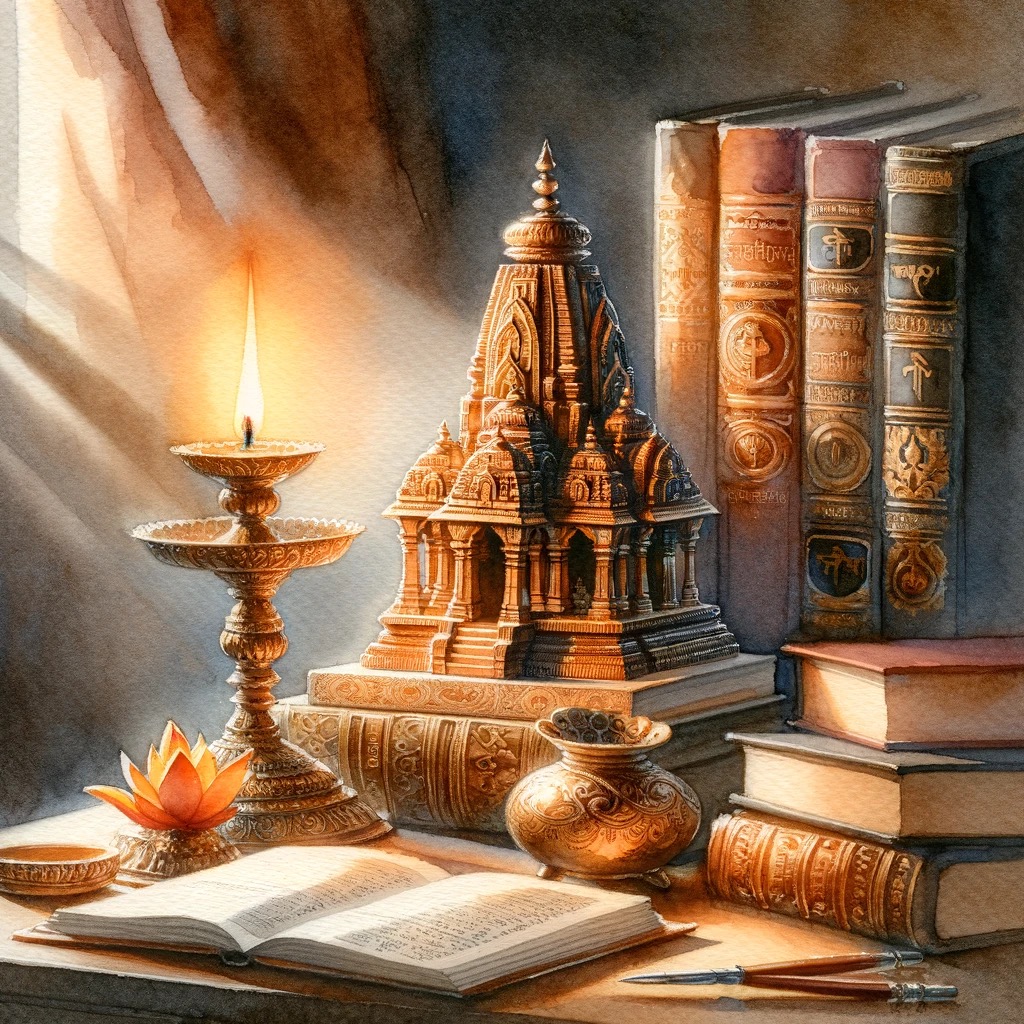Core Principles of Indian Philosophy - Bharatiya Darshana - Nastika and Astika
Diverse philosophical views shaped Bhārata’s spiritual core, and the guiding principles of these hold timeless wisdom. This course is an attempt to unlock the wisdom and potential of India’s ancient philosophies through implementation in our daily lives. To this end, the eleven Āstika and Nāstika darśanas of Bhārata; including Nyāya, Vaiśeṣika, Sāṃkhya, Mimāṃsa, Yoga, Vedānta; and Ajñāna, Ājīvika, Cārvāka, Buddha Dharma, and Jain Dharma; will be examined systematically and comparatively.
Overview
Contents
Module 1
Context, Darśana, Pramāṇa - Right Knowledge
Module 2
Ajñāna, Ājīvika, Cārvāka
Module 3
Nyāya, Vaiśeṣika, Sāṃkhya, Mimāmsā
Module 4
Bauddha, Jaina, Yoga
Module 5
Vedānta: sub-schools, Īśvara
Module 6
FAQs, Dharma
Key Takeaways
Recognize
that Sanātana Dharma is not a monolith; but rather a vast, inclusive tapestry of human thought.
Understand
the vast spectrum of beliefs that Sanātana Dharma encompasses - from outright atheism, to theism and Bhakti Vedānta.
Learn
how Buddhism, Jainism and Sikhism are very much a part of the fabric of Sanātana Dharma, although they have been intentionally projected as distinct religions due to various political factors in the past and present.
Gain
a unified approach, which includes an understanding of the gamut of Āstika and Nāstika darśanas within the purview of Sanātana Dharma.
Who is this course for?
- 1. Seekers: Individuals interested in exploring the fundamentals of Bhāratīya darśanas and their application in daily life. 2. Civilizational Enthusiasts: Those passionate about understanding and connecting with India's core civilizational values and their significance in modern times. 3. Young Thinkers: Young minds seeking to reconcile traditional wisdom with contemporary perspectives, and to find meaning and purpose in life. 4. Learners/Students of Philosophy: Individuals on a quest for gaining spiritual knowledge and self-awareness.
Know your Instructor

SN Sudharsan
SN Sudharsan is a researcher of Indian Knowledge Traditions, focusing on Dharma, Bhāratīya Darśana, Advaita Vedānta, Varkari Sampradāya and Saṃskṛta. He has pursued in-depth research and studies in these areas, having completed 33+ programs over the past 5 years, from Chinmaya International Foundation and IIT-R.
SN Sudharsan is the author of an English novel as well as 4 English language translations and commentaries on Sant Sri Jnaneshwar Maharaj's literature. He is a self-learned polyglot with near-native proficiency across six languages - Tamil, Hindi, Marathi, Kannada, Telugu and English, advanced levels in Sanskrit in addition to 5 more foreign languages.
He is a learning professional with 20+ years of experience across the academia, startup, and corporate sectors. His educational background is in linguistics, TESOL, law, and computer science engineering. He's also an accomplished singer and a former AIR artist, having won and performed in several national-level concerts, and stage programs.
SN Sudharsan lives in Chennai and is researching the history and future of Indian sociolinguistics in the context of Sanātana Dharma, to apply and crystalize it for the modern world through courses, writings, and talks.
Our Draṣṭā online courses are designed to help you in your learning journey
Become a part of the community and engage, share, discuss and deepen your learnings
Interact with the course instructor through live sessions
Access to session recordings and materials


Become a member and dive into the Indic universe
Brhat subscription gives access to exclusive member-only content rooted in the Dharmic worldview.
Starts at ₹500 per month.